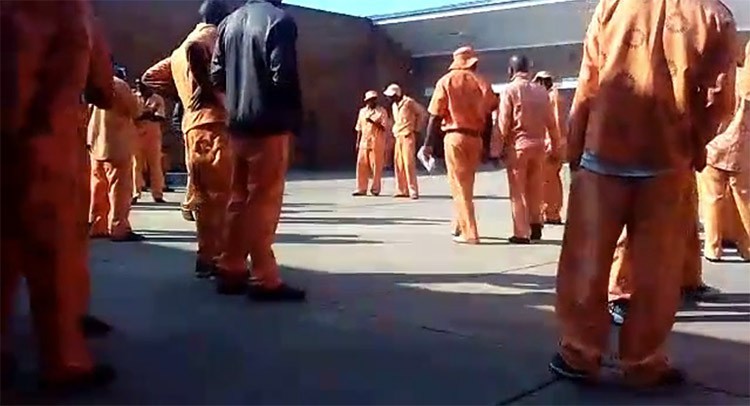
Lifers in prisons across the country are demanding that parole be considered for them.
21 June 2017
“Lifers” — people sentenced to life imprisonment — who are eligible to be considered for parole, say that they are being ignored by the authorities. A memorandum of grievances circulated between lifers at various prisons across the country has now been submitted to the Minister of Justice and Correctional Services, the Portfolio Committee of Justice and Correctional Services and the National Council of Correctional Services.
An inmate told GroundUp that about ten prisons had submitted the memorandum. Lifers from prisons Kgosi Mampuru II (Pretoria), Boksburg, Johannesburg Medium B, Leeuwkop (Johannesburg) and St Albans (Port Elizabeth) have handed over the memorandum to prison authorities.
GroundUp has seen the latest memo. Receipt of it has been signed by the heads of Kgosi Mampuru II and Johannesburg Medium B prisons. It is understood that lifers at other centres also attempted to hand over their memorandums to the heads of their prisons.
Lifers at Barberton submitted a similar memorandum earlier this year.
The law dealing with parole is complex but inmates sentenced to life before 1 October 2004 must be considered for parole after about 13 years. (The law has changed, and inmates sentenced to life imprisonment after 1 October 2004 have to serve 25 years before being considered for parole. No inmates yet qualify for this parole consideration.)
Tension over parole have escalated recently, with inmates partaking in hunger strikes and sit-ins and submitting memos to the authorities.
The latest memorandum says that there has been no progress since the submission of previous memorandums.
Someone claiming to be a member of staff at the Witbank prison wrote a letter to GroundUp saying, “What is happening to these offenders is totally unfair. They are the most cooperating bunch.”
In the memo, the lifers warn that if their concerns are not addressed they will start becoming uncooperative. They state that as lifers they are “being deliberately ignored”.
“Honourable Minister, we are refusing to be pushed towards unbecoming conduct but we are afraid that your reluctance to address our legitimate challenges will result in us being not cooperative and thus anarchy which might unfortunately trigger your officials to use force on us,” states the memorandum.
“Various litigations have been instituted against the Department and some other matters have been adjudicated already yet the Honourable Minister is reluctant to comply with such court orders. This frustrates us because we don’t know where to go anymore hence going to court become just a futile exercise.”
In the latest court case regarding parole for lifers, the KwaZulu-Natal High Court ruled on 25 May that the applications for parole of nine lifers at Westville Correctional Centre must be processed “with immediate effect”.
The court ordered that the Minister “must henceforth cease the practice of postponing or delaying the parole consideration of the applicants”.
The Correctional Supervision and Parole Board at Westville and the Case Management Committee were also ordered to forward the profile reports of the inmates in question to the Minister and the National Council of Correctional services. The Minister must then inform the applicants of his decision to grant or refuse parole.
Lifers at other prisons hope that this judgement will bode well for them in their own fights to be considered for parole.
Meanwhile, Correctional Services has instructed the state attorney to begin with proceedings to appeal the judgement. This means that there will possibly be further delays in the processing of parole for the applicants in the case.
Singabakho Nxumalo of the Department of Correctional Services said that the department is aware of the grievances, and is doing “everything possible to address” them where they are “found to be legitimate”. Nxumalo said that the “National Commissioner has also engaged with affected inmates at certain centres.”
This article was updated with comment from the Department of Correctional Services after publication.